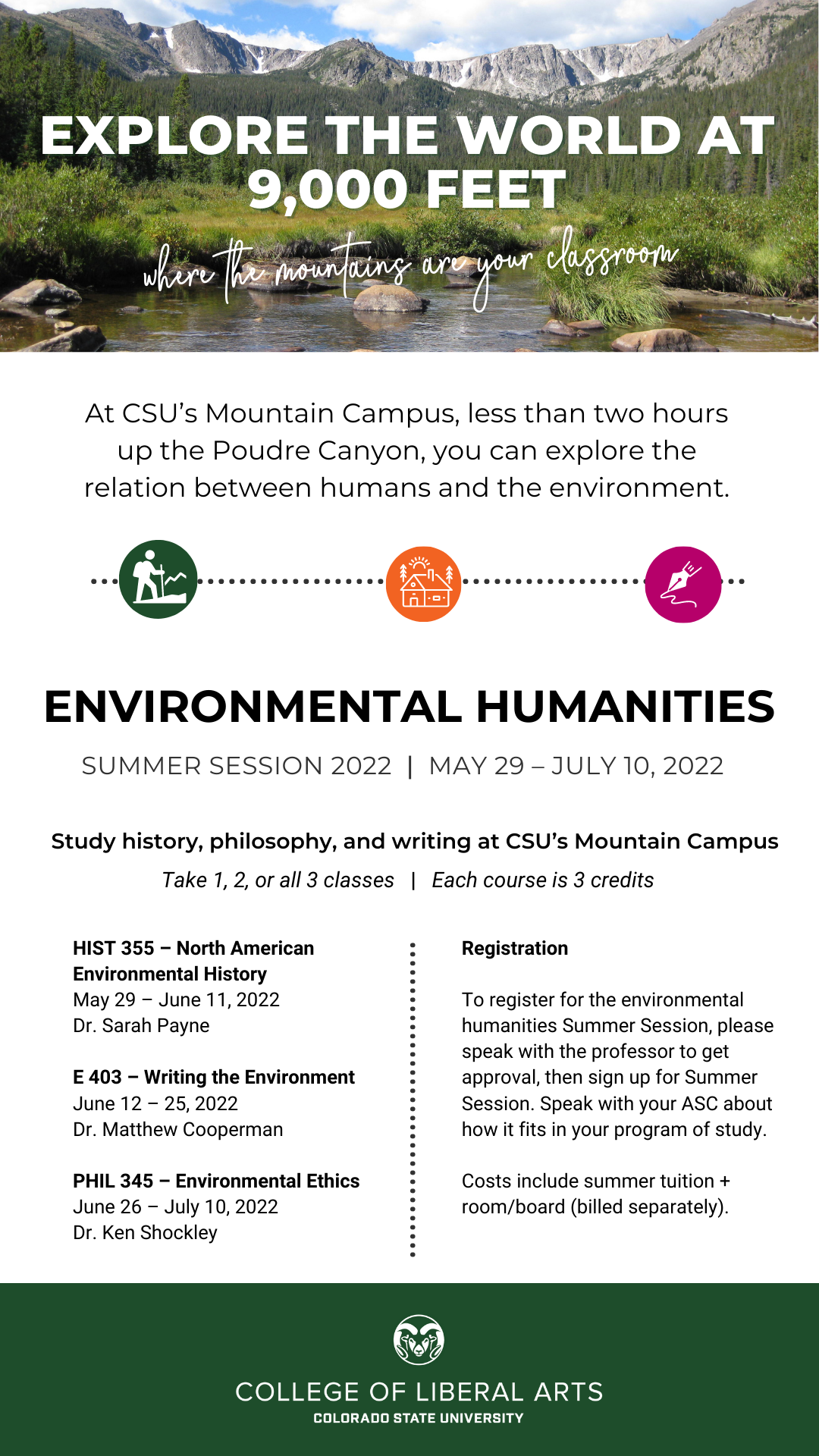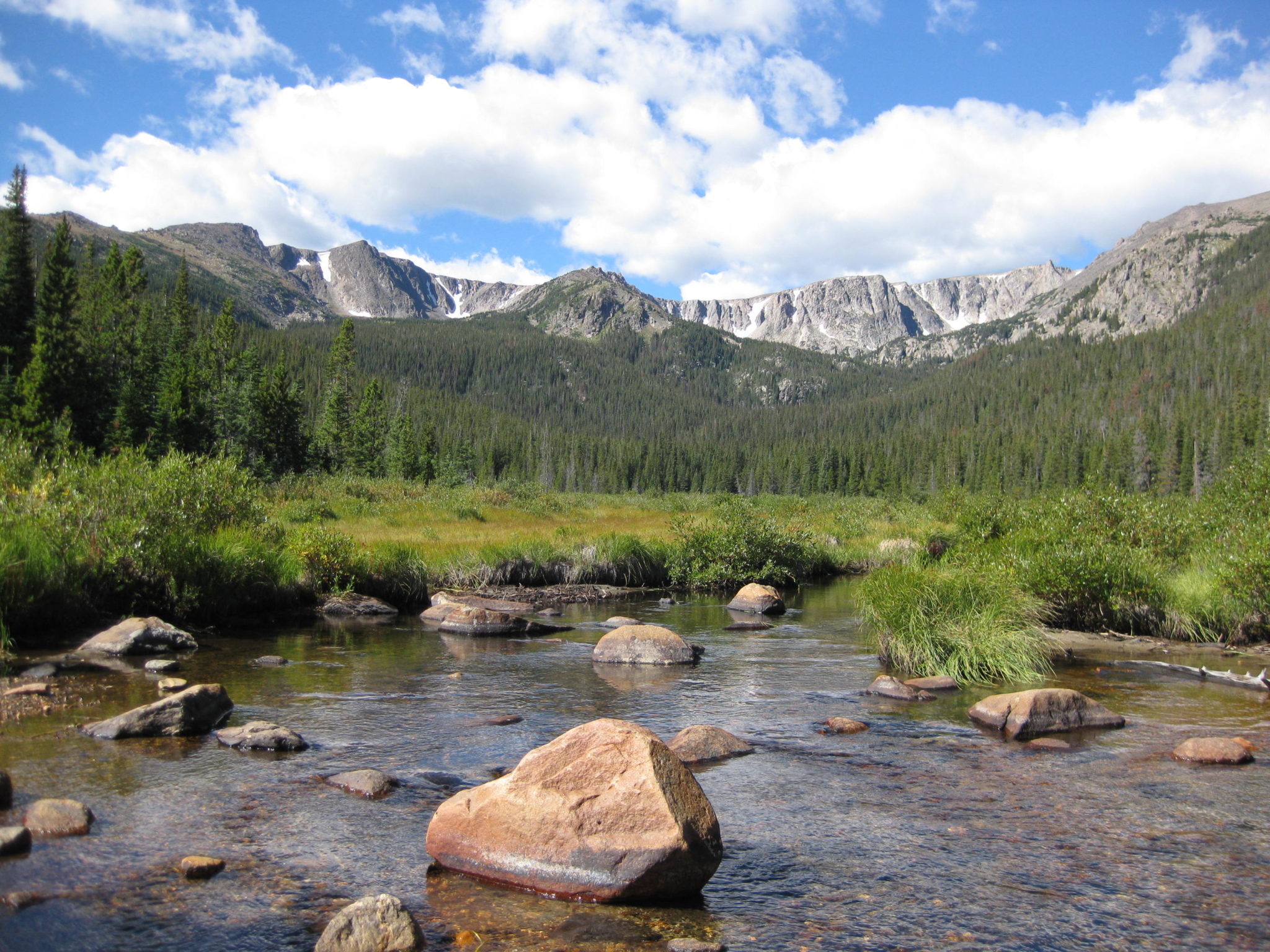
Fewer than two hours up the Poudre Canyon, you can eat, study, and play in the mountains while exploring the relationship between humans and the natural environment.
Since 1915, CSU’s Mountain Campus has been a place for students to learn amidst the trees, streams, and valleys of the Poudre Canyon and Rocky Mountain National Park. Historically used by students in forestry and natural resources, the Mountain Campus has expanded its reach over the years to include CSU student groups, conferences, school children, and other academic areas.
This summer, the College of Liberal Arts is excited to offer a 9-credit opportunity for undergraduate students to study the environmental humanities – specifically history, philosophy, and writing – during Summer Session at CSU’s Mountain Campus.
Each class is 3 credits and 2 weeks long. And students can take 1, 2, or all 3 classes.
Students will bunk in shared cabins, eat together at the dining hall, and do coursework in classrooms on the Mountain Campus property. At times, those classrooms are outdoor amphitheaters or hiking trails! Perfect for students who want to integrate their learning into a specific place.
The environmental humanities program is good for undergraduate students who are:
- Nature novices or nature experts.
- Curious, adventurous, and willing to try something new.
- Readers, writers, and thinkers.
- Eager to do coursework outside of a traditional classroom.
- Comfortable with communal living.
And it’s great for those who like fresh air, pine trees, walking trails, and the chance to see moose.
(You might also see marmot, pika, ptarmigan, and elk!)
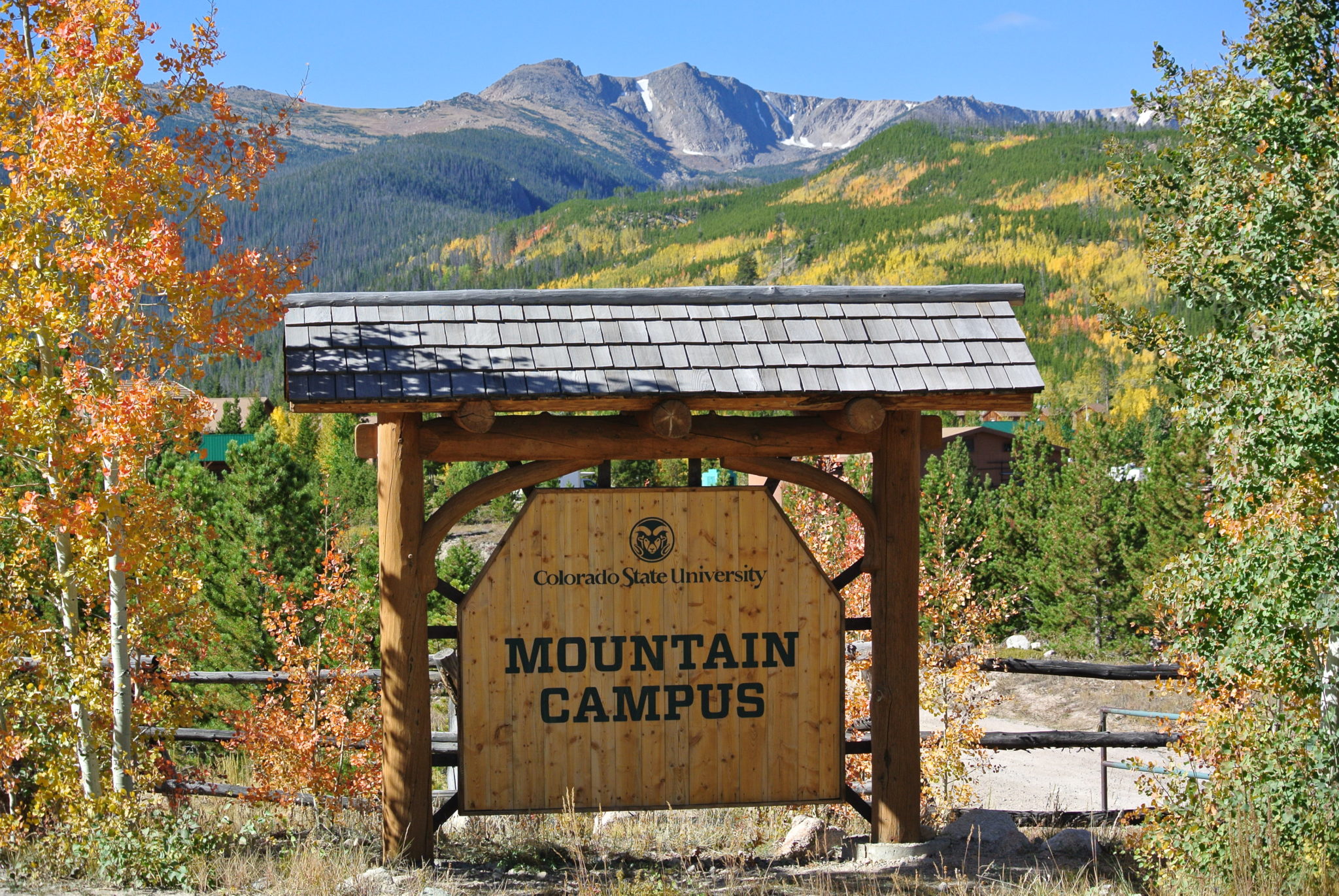
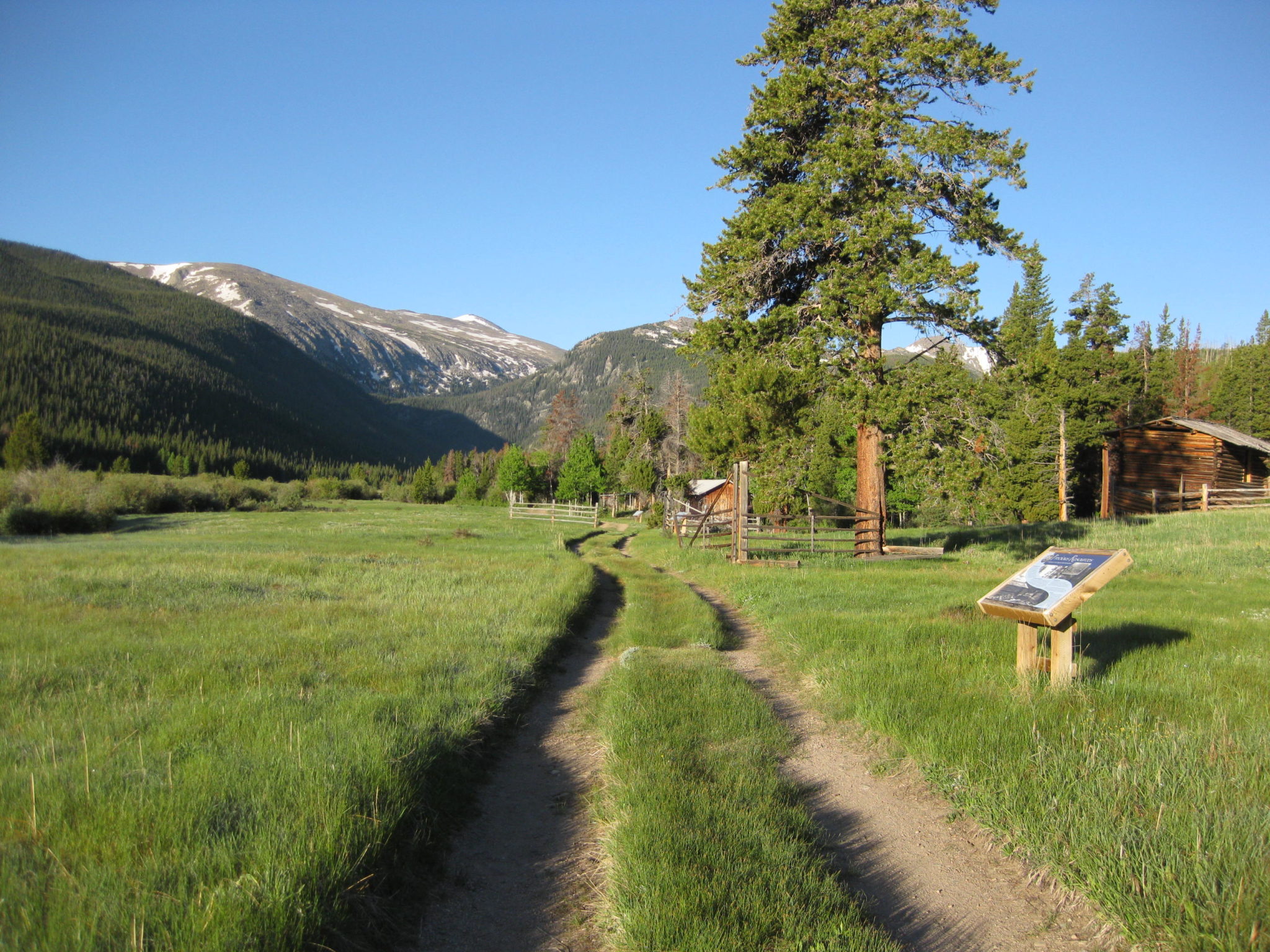
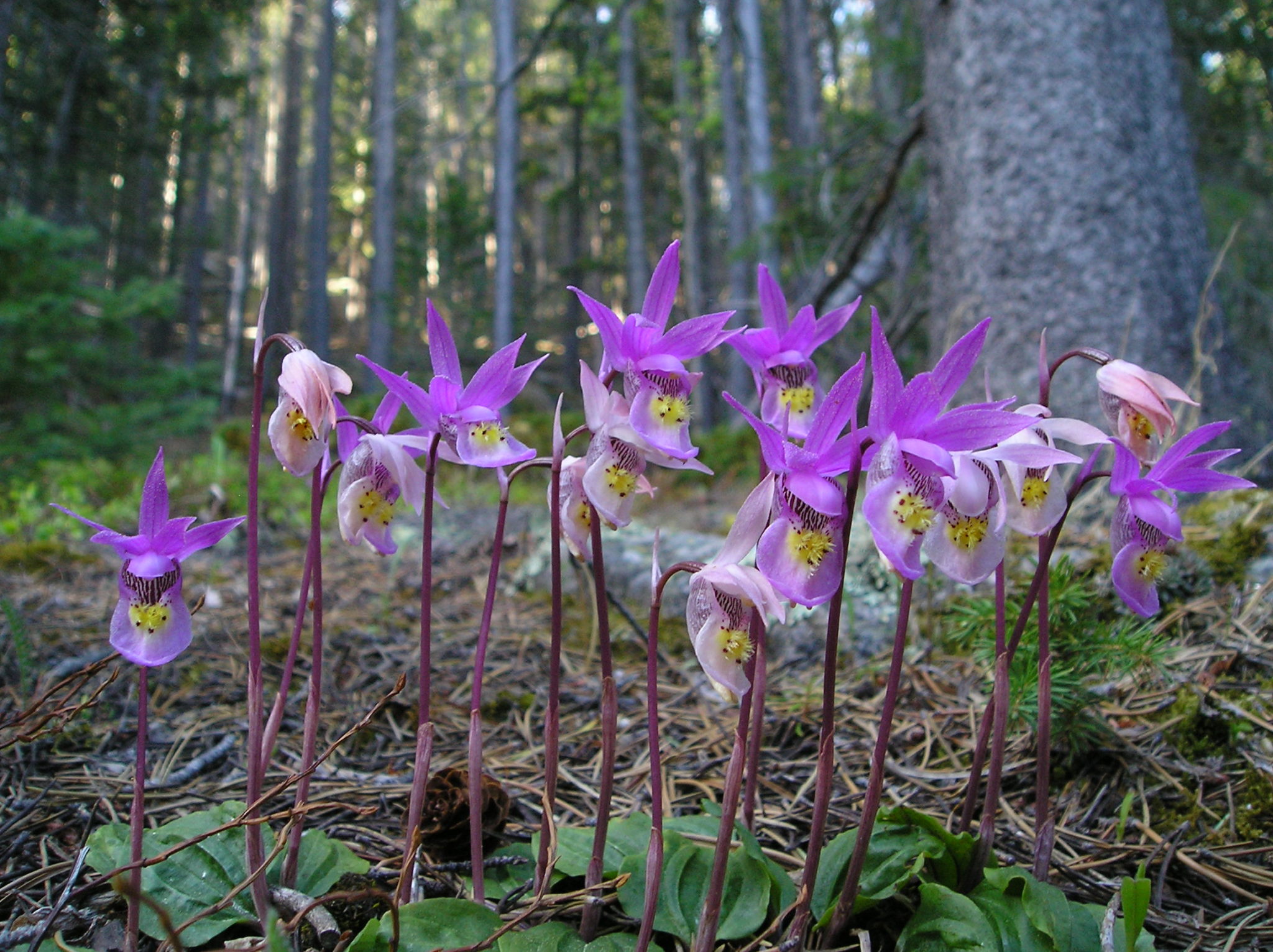
Environmental Humanities Course Details
HIST 355 – North American Environmental History
May 29 – June 11, 2022
Dr. Sarah Payne
Study American Environmental History while walking the very landscapes you’re studying at CSU’s Mountain Campus! See how the interactions between diverse groups of people and their natural surroundings have played out over thousands of years of history.
“Nothing connects us to the past quite like being in historic places. I’m thrilled to explore with students the secrets that the CSU Mountain Campus landscape can reveal about the people, events, and resources that comprise its long history. I can’t think of a better place for CSU students to study environmental history, which we often define as the history of reciprocal relationships among humans, non-human creatures, and our physical surroundings. Come hike the past with me!” – Sarah Payne
E 403 – Writing the Environment
June 12-25, 2022
Dr. Matthew Cooperman
This summer, try writing in the shadow of the Great Divide. Let CSU’s Mountain Campus be your portal to the grand tradition of American Nature Writing in poetry and prose. We’ll read a good deal of it, and we’ll get outside to write the far & near, and then & now of our experiences.
“I’m really looking forward to teaching at the Mountain Campus. In my classes I consciously try––through “field” journals, durational attention projects, walking & talking exercises––to dissolve the walls of learning. This is especially so in such courses as “About This Place” or “Writing in the Immersive Field,” where the text is literally the outdoors. Teaching at the Mountain Campus will enable us to imbue these practices with a new dimension. Come write and read and play in a spectacular setting.” – Matthew Cooperman
PHIL 345 – Environmental Ethics
June 26 – July 10, 2022
Dr. Ken Shockley, Holmes Rolston Chair in Environmental Ethics
Wander the trails and landscapes in the shadow of the Mummy Range as you reflect on the diverse perspectives that frame the value and meaning of the environment. In Environmental Ethics you will explore our relationships with the more-than-human world in a truly unique environment.
“I’ve thoroughly enjoyed teaching up at CSU’s Mountain Campus in past years, and I’m delighted to offer Environmental Ethics as part of this new Environmental Humanities program. During this intense, two-week course, students will have the opportunity to reflect not only on the readings, and on the spectacular setting, but on their own views and those of their classmates. The broadened perspective provided by this reflection is at the heart of environmental ethics, and philosophy more generally.
There’s a long history of doing philosophy through shared conversation. The sharing of ideas and experiences provides a great way of not only connecting with one another, but of seeing the world differently, through the eyes of one another. I can think of no better way to study Environmental Ethics than thinking deeply, together, as we walk the trails and sit in the shadow of the Mummy Range. Join us!” – Ken Shockley
Registration
To register for the environmental humanities Summer Session, please speak with each professor to get approval, then sign up for Summer Session (starting March 22).
Talk to your ASC about how the classes fit into your program of study.
Costs include summer tuition + room/board (fees assessed separately).
Questions?
- The History and Philosophy courses count toward the SOGES minor.
- Any undergraduate student at CSU can take these classes.
- These classes count as upper division electives – talk to your ASC about how.
- CSU Summer can help students find additional tuition and financial aid information as well as campus jobs and housing (if needed, before and after the courses)
- Please contact the Office of Financial Aid for questions about summer course payment.
- Please contact the instructor of the course for approval to enroll and for more details about syllabus and curriculum.
- Sarah Payne: Sarah.Payne@colostate.edu
- Matthew Cooperman: Matthew.Cooperman@colostate.edu
- Ken Shockley: Kenneth.Shockley@colostate.edu
